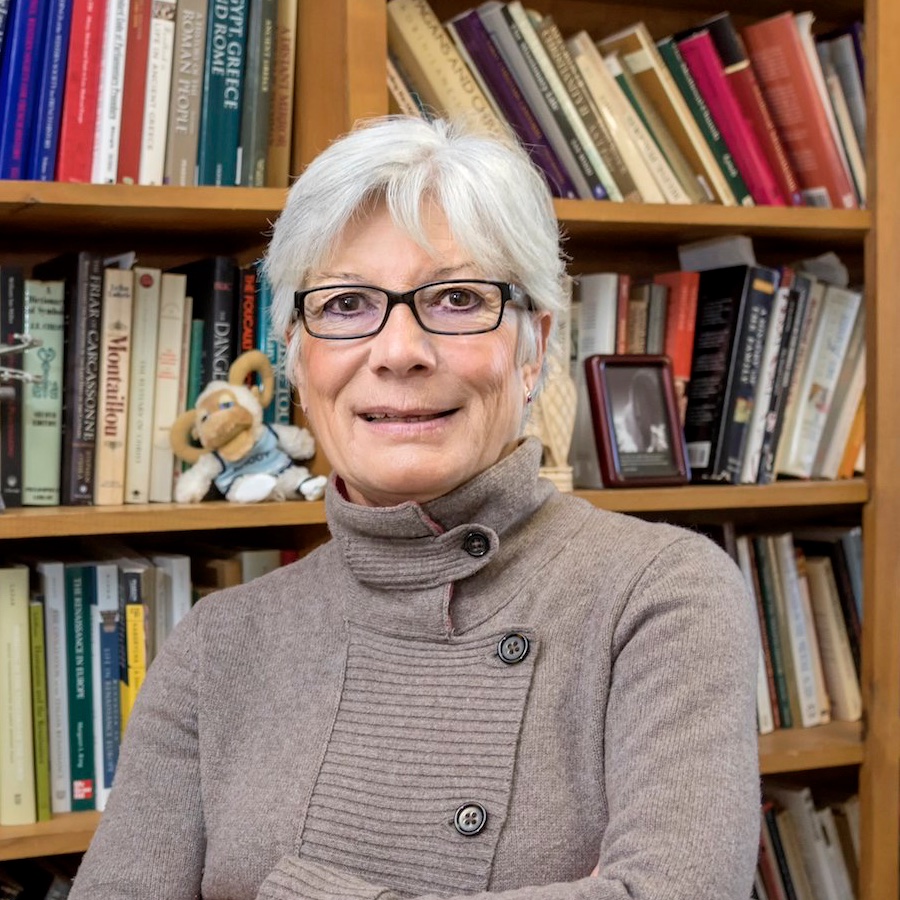It is uncommon to find a specialist on the niche that is medieval history, however the University of Rhode Island’s own Professor Joëlle Rollo-Koster is just that.
Born and raised in southern France in a town called Toulon, Koster has been immersed in medieval life since she was born.
“Because Toulon was a big navy town during WWII, the Nazi bombarded the city left and right and the only place left standing up was a 16th century convent that my parents and their parents rented, so that’s where I spent a good amount of my childhood, surrounded by rats,” Koster said.
Koster described the difficulty of attending university due to her social status.
“I grew up in the French educational system, which is a system of merit but still a class system where only the very wealthy can go forward in their education,” Koster said.
Koster said that she “was able to get a scholarship in order to get up to my master’s degree in France,” at the University of Nice on the southeastern coast.
During her time at the University of Nice, Koster married an American. After graduating from her Master’s degree she moved with him to New York, where she attended the State University of New York at Binghamton in Binghamton, New York. Upon completion of her education, Koster taught part time at Castleton State College in Castleton, Vermont and came to teach at the URI in 1996.
Koster described the medieval history field as one which has tons to explore, yet few people study it, which gives a sense of freedom to the profession. Her dissertation was on a manuscript within that Vatican that was virtually untouched. When reading these manuscripts, Koster explained how really understanding the texts she reads is essential.
“To be a historian you need to learn and read everything that other people have written on the topic that interests you,” Koster said. “You need to know lots of languages because part of the job of a historian is to look at what everybody else has said about a topic and then you bring in something new.”
Koster can read Latin, and can understand texts in French, English, German, Spanish and Italian, as well as now unspoken dead languages such as Old French, Old Spanish and Old Italian.
“I read for understanding,” Koster said. “I don’t read to do a word for word translation; I read for knowledge.”
Koster’s research centralizes around the medieval papacy in a French town called Avignon. Her work allows for a lot of travel back and forth between Avignon and the Vatican.
“We have hundreds of thousands of documents in France in the Avignon archives and then copies at the Vatican,” Koster said. “Traveling all around the world and talking with colleagues is a lot of fun because I think that ideas need to be shared, and if you bury me with my ideas then what’s the point?”
Outside of her work, Koster travels to complete treks across the world. She has climbed Machu Picchu, Mont Blanc, Mount Kilimanjaro, the Patagonia mountains and part of Mount Everest. When describing the trekking experience, Koster said, “It’s forgetting about your life, forgetting about comfort, forgetting about your cellphone and the internet and it’s okay, you survive.”
Koster hopes to continue to share the relevance and significance of medieval history to students at URI and across the world.
“Some of the things I’ve realized even in my old age is that we need more connections because academics have the tendency to work in isolation,” Koster said, emphasizing the importance of academic communication in years to come.





